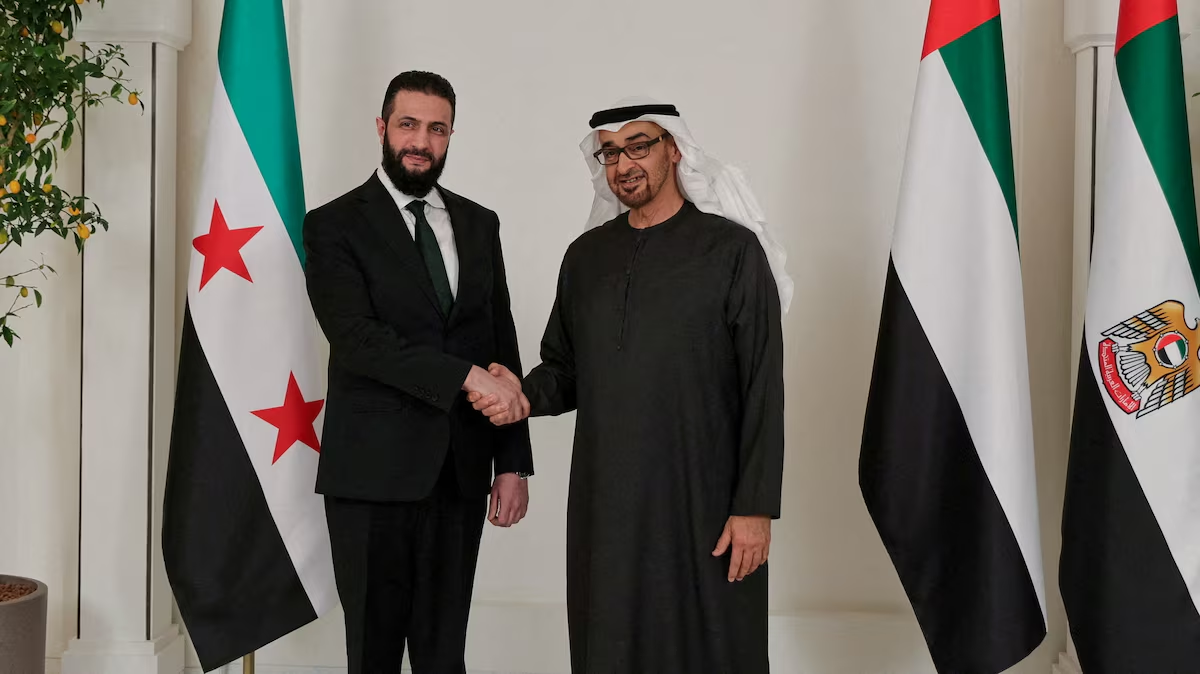UAE and Syria Begin Dialogue to Ease Israel-Syria Tensions and Seek Regional Stability
In the wake of rising tensions in the Middle East, secret talks have begun between Israel and Syria, with the United Arab Emirates (UAE) acting as a mediator. According to three reliable sources, this backchannel dialogue is primarily focused on security and intelligence cooperation and confidence-building measures.
UAE and Syria Begin Dialogue to Ease Israel-Syria Tensions and Seek Regional Stability
UAE and Syria Begin Dialogue to Ease Israel-Syria Tensions and Seek Regional Stability
In the wake of rising tensions in the Middle East, secret talks have begun between Israel and Syria, with the United Arab Emirates (UAE) acting as a mediator. According to three reliable sources, this backchannel dialogue is primarily focused on security and intelligence cooperation and confidence-building measures.
The discussions were initiated just days after Syria’s new President Ahmed Sharar visited the UAE on April 13. Former intelligence officials from the UAE, Syria, and Israel are participating in the talks. Sources indicate that the discussions are currently limited to “technical and security” issues but may expand in scope in the future.
Israeli Strikes and the Druze Crisis
News of the secret dialogue surfaced after a series of Israeli airstrikes in Syria, one of which struck just 500 meters from the presidential palace in Damascus. Israel stated that the strike was intended as a message to Syria’s new leadership, which has been accused of threatening the Druze community.
The Druze, a minority sect within Islam, are present in Syria, Lebanon, and Israel. The Syrian government has taken steps to reinforce security in the Druze-populated Suwayda region by deploying local recruits, which has helped to ease some of the tensions.
Syria’s Message: “Not a Threat to Israel”
Syria’s new administration has taken steps to signal goodwill toward Israel, stating that it does not wish to become a threat to any nation — including Israel. In a letter to the U.S. State Department, Syria’s Ministry of Foreign Affairs clearly stated, “We will not allow ourselves to become a threat to any side, not even to Israel.”
They also disclosed that two senior leaders of Palestinian Islamic Jihad — allegedly involved in the Hamas-led October 7 attacks — have been arrested. Moreover, meetings have reportedly been held with Jewish representatives in Damascus and abroad.
UAE’s Role and Concerns
The UAE had initial concerns over the Islamist leanings of Syria’s new leadership. However, sources say these concerns were largely alleviated after an extensive meeting between President Sharar and UAE President Sheikh Mohammed bin Zayed. The meeting, which lasted several hours, is said to have paved the way for the current backchannel talks.
Wider Regional Anxiety
Israel has long pursued a "shadow campaign" in Syria aimed at weakening Iran-backed militias and Hezbollah. Since the ousting of former President Bashar al-Assad, the scale of these strikes has intensified. Israel has consistently warned that it will not tolerate Islamist elements operating in southern Syria.










